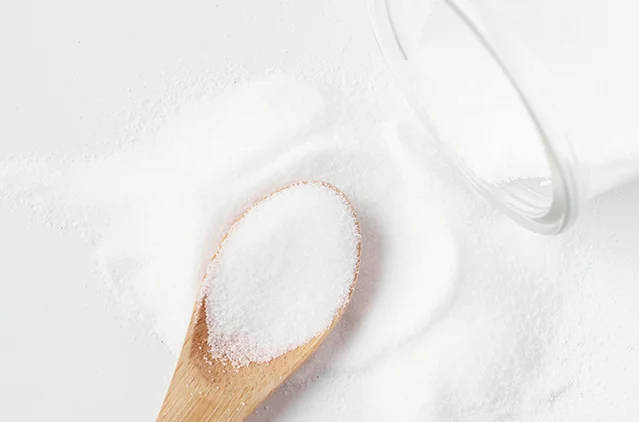
IN THIS ARTICLE:
3) Glutamine Benefits for Skin
4) Glutamine Benefits for Hair
5) Glutamine Benefits for Body Wellness
7) Possible Side Effects of Glutamine
8) Should You Take Glutamine for Skin, Hair & Body Care?
Introduction
When we think about skin, hair, or body care, our minds often jump to serums, creams, or advanced aesthetic treatments. But true beauty doesn’t just begin at the surface—it’s also fueled by what we feed our bodies inside. One nutrient that’s been creating a quiet buzz in the world of wellness and aesthetics is glutamine.
Glutamine is more than just another amino acid; it’s a powerful building block that supports healing, collagen production, and even your immune system. Curious to know how it ties into glowing skin, stronger hair, and better recovery after treatments? Let’s explore the glutamine benefits, its uses, side effects, and why it may deserve a place in your beauty and wellness routine.
What is Glutamine?
Glutamine is a “conditionally essential” amino acid. That means your body can usually make enough of it, but under stress—whether from illness, intense workouts, or even cosmetic procedures—your demand often exceeds supply.
You’ll find it naturally in protein-rich foods like eggs, chicken, fish, beans, and dairy. In the body, glutamine works hard behind the scenes:
- It helps repair tissues and build proteins.
- It strengthens gut health, which in turn impacts your skin and scalp.
- It supports immune defense, reducing downtime during recovery.
- It plays a big role in muscle repair and energy balance.
In short, glutamine is not just for athletes—it’s equally valuable for anyone investing in skin, hair, and body treatments.
Glutamine Benefits for Skin
If radiant, youthful skin is your goal, glutamine might just be your ally.
It helps stimulate collagen production—the protein that keeps skin plump, firm, and wrinkle-resistant. That means fewer fine lines and better elasticity over time. If you’ve undergone treatments such as chemical peels, micro needling, or laser resurfacing, glutamine can also support faster recovery by boosting cell repair.
Another bonus? It strengthens your skin barrier, locking in moisture and keeping irritants out. And for those dealing with acne or redness, glutamine’s anti-inflammatory role may calm flare-ups, leaving the skin looking smoother and healthier.
Glutamine Benefits for Hair
Your hair is made of keratin, a protein that needs strong building blocks. Glutamine helps supply these, supporting stronger, thicker strands.
By improving nutrient absorption through better gut health, it indirectly nourishes your scalp—essential for healthy hair growth. It also helps your body cope with stress, one of the biggest silent culprits behind hair thinning. For anyone struggling with hair fall during high-stress periods, glutamine may provide a supportive balance.
Glutamine Benefits for Body Wellness
Glutamine isn’t just about beauty—it ties into overall wellness, which naturally reflects in how you look and feel.
- Muscle Recovery: After aesthetic body contouring or even regular workouts, glutamine supports quicker tissue repair.
- Gut-Skin Connection: A healthy gut equals clearer, brighter skin. Glutamine repairs the intestinal lining, reducing toxin leaks that can cause dullness or breakouts.
- Immunity: Strong immunity is crucial, especially post-procedure, to avoid complications and speed up healing.
Think of it as a quiet backstage worker ensuring your body stays in balance.
Common Uses of Glutamine
Glutamine is used in different ways depending on the goal:
- Supplements: Many fitness enthusiasts and recovery patients take glutamine in powder or capsule form.
- Clinical Nutrition: Hospitals often prescribe glutamine for patients needing accelerated healing.
- Cosmetic Skincare: Advanced formulations sometimes include glutamine for its skin-repairing properties.
Tip: Always consult a doctor before starting supplements—your needs may differ based on lifestyle or ongoing treatments.
Possible Side Effects of Glutamine
Glutamine is generally safe when taken in moderation, but like anything, too much can cause trouble. Overuse may lead to bloating, stomach discomfort, or headaches. Rarely do people experience dizziness.
Precautions
- People with kidney or liver concerns should avoid glutamine unless cleared by a doctor.
- Cancer patients should consult their oncologist before use.
- Pregnant or breastfeeding women should use it only under medical supervision.
Should You Take Glutamine for Skin, Hair & Body Care?
It depends on your lifestyle and needs. If you’re under constant stress, frequently fatigued, or undergoing cosmetic treatments where recovery is key, glutamine may help.
While protein-rich foods already provide glutamine naturally, supplements can be helpful during high-demand periods. Still, supplementation should never be random—getting guidance from a dermatologist or body care specialist ensures safe and effective use.
Kosmoderma Expert Note
At Kosmoderma Skin, Hair & Body Clinics, we believe great results come from a holistic approach. Yes, treatments like laser therapy, fillers, or body contouring deliver visible changes—but pairing them with smart nutrition can take results to the next level.
Our dermatologists and aesthetic experts often guide patients on how nutrients like glutamine can complement their treatment plans—whether for faster healing, glowing skin, or healthier hair.
If you’re curious about whether glutamine fits into your routine, we’d be happy to help. Book a consultation at Kosmoderma, and let’s design a personalized plan for your skin, hair, and wellness goals.
FAQs on Glutamine Benefits
1. Is glutamine good for skin glow?
Yes, by boosting collagen and reducing inflammation, glutamine enhances elasticity and radiance.
2. Can glutamine help with hair loss?
It supports keratin production and scalp nutrition, which can strengthen hair and reduce thinning.
3. Are there risks with long-term use?
In recommended doses, glutamine is safe. Problems usually occur only with excessive, unsupervised intake.
4. Should I take glutamine after cosmetic treatments?
It may support recovery, but always confirm with your dermatologist.
5. Can I get enough from diet alone?
Yes—foods like eggs, milk, chicken, and beans provide plenty. Supplements are best reserved for special cases.
Conclusion
Glutamine is far more than a fitness supplement—it’s a key nutrient that helps your body recover, strengthens your skin, and supports healthy hair. When used wisely, and ideally under expert guidance, it can be a powerful addition to your beauty and wellness journey.
Ready to glow from the inside out? Visit Kosmoderma Clinics today and discover how the right blend of treatments and nutrition can transform your skin, hair, and body care routine.
 Whatsapp: 7676757575
Whatsapp: 7676757575 


